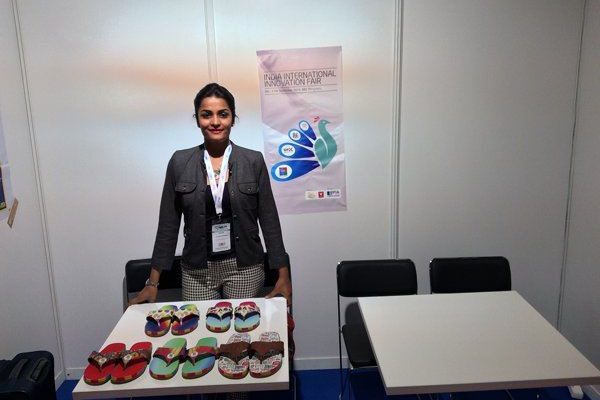Trishla Surana, A footwear designer from Mumbai expresses the need for change in Sir/Madam culture. She is the founder of Colour Me Mad, which is a footwear designing start-up. Colour Me Mad aims to innovate and customize footwear using cork which is an eco-friendly material.
Trishla, a commerce graduate is a commercial artist and holds exhibitions in international markets. She expresses, “The primary name concept is honed in the vast majority of the nations I visit for my carnivals.”
She confirms, — I insist people on tending me with my first name as opposed to Sir/Madam. I do not want individuals to feel I am imposing something on them. We offer space to each other as long as professionalism is maintained and prefers first name notation over Sir/Madam.
Trishla assumes it is not only about the prefixes ‘Sir/Madam’. When superiors are mentioned by first name they show their power as they are the boss. Work constrained on representatives never gives the correct yields. When you attempt to try with your group, by talking about and taking recommendations, it develops the connection between the two.
“As long as the worker/employee does not take me for granted for being friendly with them, it is perfect. I give my staff the freedom to express their ideas and in turn expect their dedication towards work” adds Trishla.
Trishla clarifies, Annulling the Sir/Madam idea will also prevent people from being dictatorial. The first name tradition will bring more equality and harmony. The managers will refrain from mirroring their energy on their subordinates.
She unveils that the government officials prefer to be designated as Sir (‘Saheb’)/Madam. They get offended when referred by first names. Trishla opines, by evacuating Sir/Madam practice, corruption can also be eradicated, as there will be straightforwardness in the framework.
Prior, Sir/Madam was implied for regard yet these days the phrasing is being misused. Individuals in India have confused the importance of Sir/Madam and related it to control. In universities, the juniors are compelled to address their seniors Sir/Madam however they are in a similar field. The youngsters get bugged to finish their seniors assignments. She presumes this sort of regard is out of dread. This occurs in a considerable measure in graduation foundations.
Trishla weights on the adjustment in the instruction framework in India. In different nations, the educators are tended to by their first name. However, In India, it is rarely pursued. If not the educators, in any event the seniors must be halted from constraining the fresher’s to allude them as Sir/Madam. The Education institutes should dishearten such routine with regard to Sir/Madam among the student.
Education is the most powerful weapon to change the world. So, we should enlighten the true meaning of respect to graduates. They are the upcoming era of corporate and carry Sir/Madam convention to their workplaces. Henceforth, these titles ought to be dealt with and ceased at the starting itself.
Trishla concludes, “Treat people the way you want to be treated. Talk to people the way you want to be talked to. Respect is earned by our behavior and not merely by adopting Sir/Madam culture.”







Add comment